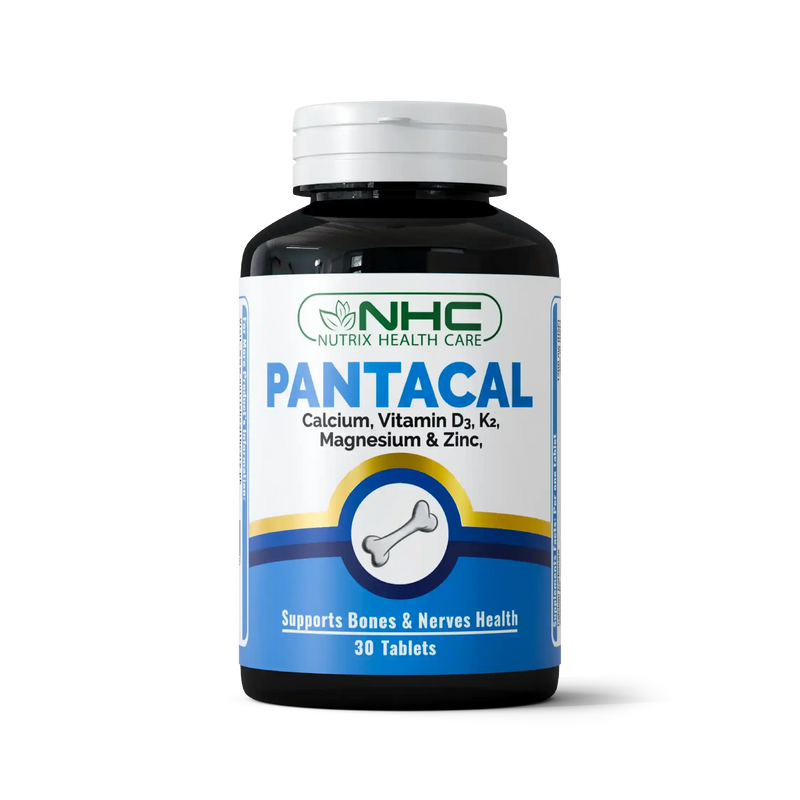5 Common Causes of Heartburn and Indigestion in Ramadan
Do you often feel a burning sensation in your chest after Iftar? Or perhaps bloating and indigestion after a long day of fasting? If yes, you are not alone because these symptoms of heartburn are quite common during Ramadan.
But don’t worry! Read this article to learn about the common reasons for heartburn and practical tips for relief to help you fully enjoy the blessings of this holy month.
5 Common Reasons for Heartburn & Indigestion During Ramadan
Here are some heartburn triggers that can lead to digestive discomfort.
1. Changes in Eating & Sleep Patterns
During Ramadan, your daily routine undergoes major changes. The sudden shift in eating patterns from three meals to one large meal, along with adapting to new meal timings (Suhoor and Iftar), can impact digestive health and lead to stomach issues.
Moreover, changes in meal timings also affect sleep schedules. Sleeping late after Iftar and waking up early for Suhoor can disrupt the body's natural sleep-wake cycle. This can negatively affect digestion and slow down metabolism, making it difficult for the digestive system to function properly.
2. Consuming Spicy & Fried Foods

Traditional Ramadan dishes mainly include fried, fatty, and spicy foods—without them, the Iftar table feels incomplete. These foods may taste delicious, but they can put a strain on your digestive system, leading to acidity, bloating, and indigestion.
Fatty foods like fried meat, creamy desserts, and rich sauces can slow the stomach's emptying rate, causing acid to accumulate and increasing the risk of acid reflux. Similarly, excessive use of spicy ingredients like red chili, hot sauce, and pepper can irritate the stomach lining and stimulate acid production. Fried items are hard to digest and put pressure on the stomach, contributing to bloating and a feeling of heaviness.
3. Overeating During Iftar
After long hours of fasting, it is natural to feel tempted to indulge in a large Iftar meal. However, overeating after starving all day causes the body to struggle to digest everything at once, leading to stomach cramps, acid reflux, and nausea. So instead of feeling energized, you end up feeling sluggish and fatigued.
4. Skipping Suhoor or Eating Heavy Foods Late at Night
Many of us are guilty of eating late at night and skipping Suhoor. This habit causes the stomach to remain empty for too long, allowing acid to build up and making the stomach more susceptible to heartburn.
On the other hand, consuming fatty and spicy food late at night, especially close to bedtime, can overload your stomach and slow down digestion, resulting in acid reflux, gas, and cramps.
5. Drinking Caffeine or Carbonated Drinks

Dehydration from prolonged fasting may contribute to acid reflux by reducing the stomach’s ability to neutralize acid. On top of that, drinking tea, coffee, and soft drinks can further aggravate the condition. Coffee and tea contain high amounts of caffeine, while soft drinks are loaded with sugar, both of which can negatively impact digestive health. Their excessive intake stimulates acid production and irritates the stomach lining.
4 Practical Tips to Prevent Heartburn & Indigestion
Here are the top 4 effective tips to minimize symptoms and provide relief.
1. Eat Probiotics & Fiber-Rich Foods
Making mindful food choices is necessary to prevent heartburn. Fiber and probiotics play a key role in digestion and gut health.
Fiber helps regulate bowel movements and eases constipation and bloating. It also keeps you full for longer and provides sustained energy while fasting. On the other hand, probiotics support a balanced gut microbiome, which helps ease digestive discomfort.
Here are some simple ways to get more fiber and probiotics during Ramadan:
- Eat whole grains like oats, barley, and bran bread at Suhoor.
- Include plenty of vegetables and fruits at Iftar.
- Add a variety of beans and legumes to your meals.
- Use yogurt in smoothies, salads, and dressings as a natural source of probiotics.
2. Herbal Teas for Digestive Relief

Herbal teas naturally help soothe the digestive system with their calming properties. Consider trying the following teas for instant relief:
- Chamomile Tea: Provides a soothing effect and may help reduce stomach cramps.
- Peppermint Tea: Helps relax the stomach muscles and improve digestion.
- Ginger Tea: Helps reduce bloating and nausea.
3. Drink Plenty of water
Hydration is an important factor for healthy digestion. Drinking plenty of water from Iftar to Suhoor supports the body's natural detoxification processes and aids digestion. Avoid fruit juices and sugary drinks, as they are high in fructose, which can cause bloating and diarrhea in some individuals.
4. Take Antacids for Instant Relief
Antacids are an over-the-counter treatment for heartburn and acidity. For instant relief from heartburn with a soothing effect, we recommend Coolent Syrup!
It is a unique and effective combination of Calcium with Peppermint Oil, Anise Oil, and Lemon Oil. Calcium helps to neutralize excess acid, and Peppermint Oil helps reduce flatulence and bloating. Anise Oil in the syrup reduces cramps with its gas-relieving properties, and Lemon Oil supports healthy digestion.
Coolent's most wonderful quality is that it provides a cooling and soothing effect immediately.
Conclusion
Ramadan fasting brings major changes in eating habits and meal timing, leading to digestive problems like acidity, heartburn, and bloating. These issues are often aggravated by factors such as overeating at Iftar, excessive coffee and tea intake, skipping Suhoor, and consuming hard-to-digest foods.
However, by adopting practices like eating probiotics and fiber-rich foods, staying hydrated, drinking herbal teas, and taking antacids, you can maintain digestive health and fully enjoy this month without any discomfort.
References
clevelandclinicabudhabi.ae/en/health-byte/ramadan/fasting-and-digestive-disorders
medicalnewstoday.com/articles/325822#home-remedies
healthline.com/health/gerd/beverages#treatment


